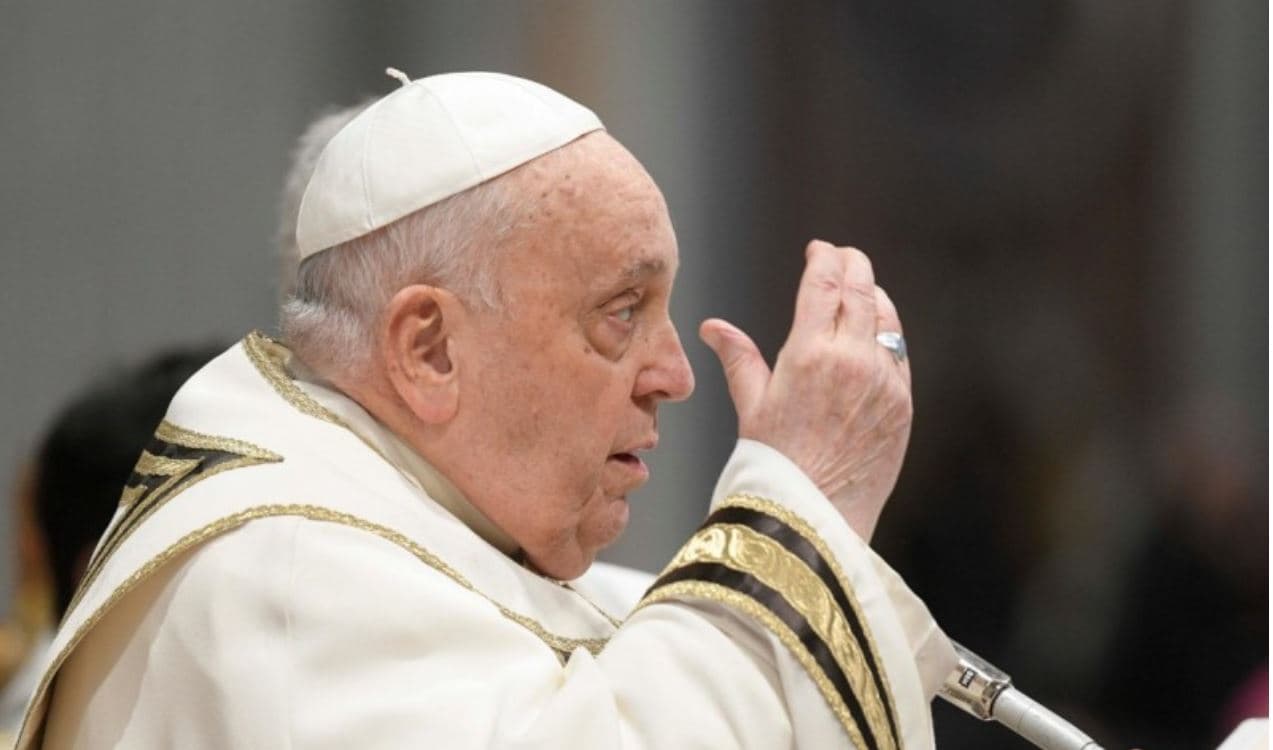On the Solemnity of the Epiphany, Pope Francis said Christians should seek “to recognize Jesus close to us,” including in the poor, the abandoned, and prisoners.
He also offered his prayers for peace for those experiencing conflict in Ukraine, Palestine and Israel.
Speaking during the Angelus in St. Peter’s Square, he said by offering “a little of our time and our energy to God and neighbor, we can find consolation by consoling, we can find relief by relieving, and we can find meaning in our existence by becoming a sign of hope for those we meet.”
Recalling the visit of the Magi to the baby Jesus, the pope called on the Church to follow their path.
“If we pay attention, we will discover something rather strange: While these wise men from far away come to find Jesus, those who are close by do not take one step towards the grotto in Bethlehem,” Francis said.
“Drawn and guided by the star, the Magi face enormous expenses, make their time available and accept the risks and uncertainties of which there was no shortage in those times. And yet they overcome every difficulty to get to see the King Messiah, because they know that something unique is happening in the history of humanity, and they do not want to miss the event,” he continued.
RELATED: Pope Francis warns against belief in an ‘abstract God’ on Solemnity of Mary
“Instead, those who live in Jerusalem, who should be the happiest and the most prompt to rush, stay still. The priests and theologians correctly interpret the Sacred Scriptures and provide directions to the Magi about where to find the Messiah, but they do not move from their ‘desks.’ They are satisfied with what they have, and they do not go seeking; they do not think it is worth the effort to go to Jerusalem, to accompany the Magi to Bethlehem, even if it is only a matter of a few kilometers,” the pope explained.
He asked the faithful to question themselves on who they imitate: The Magi or those who stayed in Jerusalem?
“God came towards us: Out of love He bridged all the immense distance between Him and us, He was ‘born of woman’, small and in need of everything. And us? Do we go towards Him, do we try to get to know Him, or do we go straight on our way, as if nothing happened?” Francis asked, continuing to emphasize that God was “born of a woman,” as he did during his Mass for the Solemnity of Mary, the Holy Mother of God on Jan. 1.
“Let us ask the Virgin Mary to help us so that, imitating the shepherds and the Magi, we are able to recognize Jesus close to us, in the Eucharist, in the poor, in the abandoned, in the prisoner and, by offering a little of our time and our energy to God and neighbor, we can find consolation by consoling, we can find relief by relieving, and we can find meaning in our existence by becoming a sign of hope for those we meet,” the pope said.
Francis’s remarks at the Angelus echo his homily earlier in the day at the Mass in St. Peter’s Square.
During the Mass, he spoke about the brightness of the star which led the Magi to Bethlehem.
“We likewise, by our love, can bring to Jesus the people that we meet, enabling them to see in the Incarnate Son of God the beauty of the Father’s face and his way of loving, which is through closeness, compassion and tenderness. Moreover, we can do this without the need for extraordinary means or sophisticated methods, but simply by making our hearts bright with faith, our gazes generous in welcome, our gestures and fraternal words full of gentleness and kindness,” he said.
The pope pointed out the Magi were not following “the clues of a secret code,” but a star that they saw shining in the sky.
“While they observed it, others – such as Herod and the scribes – were not even aware of its presence. Yet the star is always there, accessible to those who raise their glance to heaven in search of a sign of hope,” Francis said.
“This too holds an important message. God does not reveal himself to exclusive groups or to a privileged few, but offers his companionship and guidance to those who seek him with a sincere heart. Indeed, he often anticipates our own questions, coming to seek us even before we ask. For this reason, in Nativity scenes, we portray the Magi with the features of all ages and races: A young person, an adult, an elderly person, characterizing the different peoples of the earth. We do this in order to remind ourselves that God seeks everyone, always,” he said.
The pontiff said Christians should meditate on this, “in a world in which individuals and nations are equipped with ever more powerful means of communication, and yet seem to have become less willing to understand, accept and encounter others in their diversity!”
Follow Charles Collins on X: @CharlesinRome













